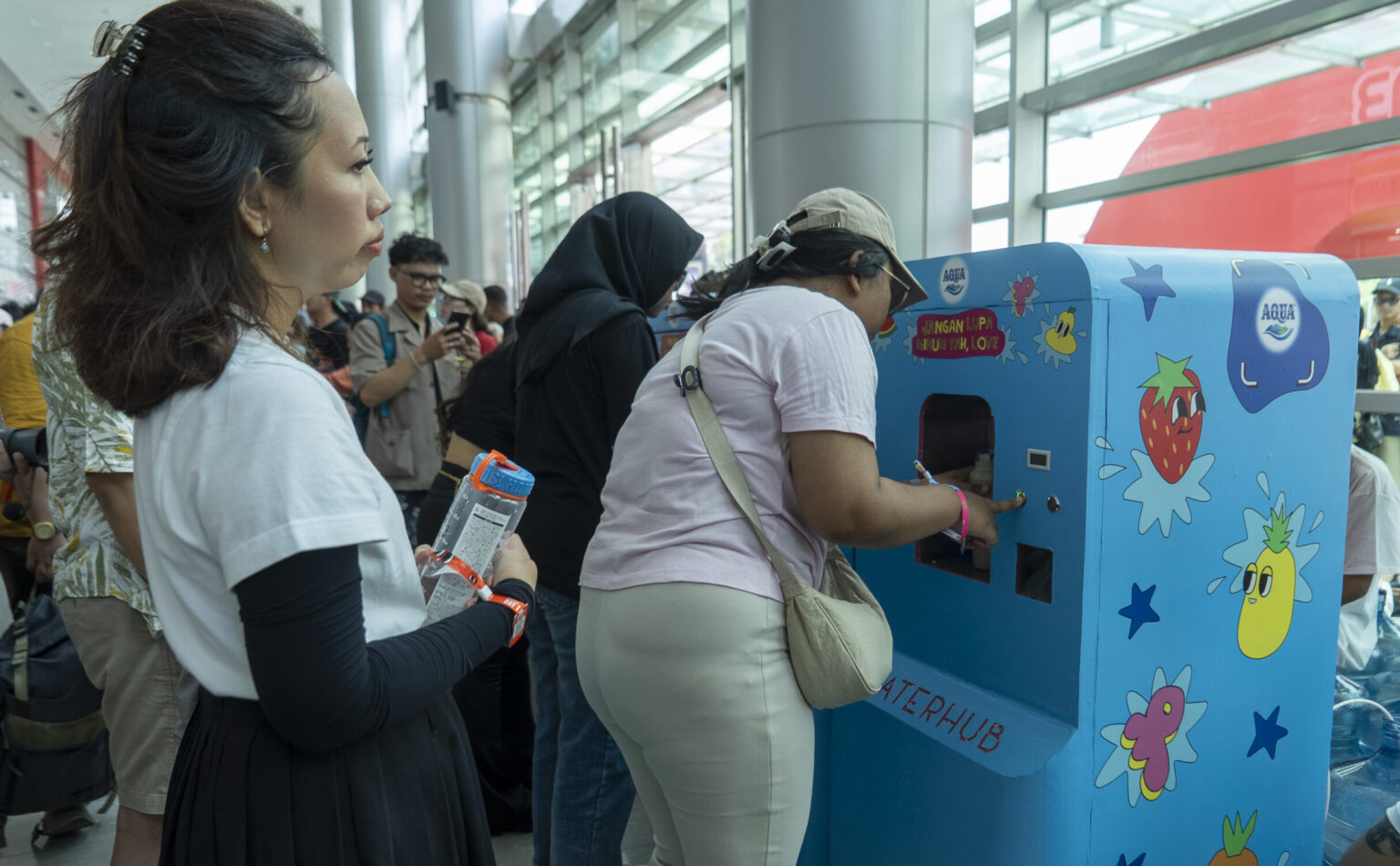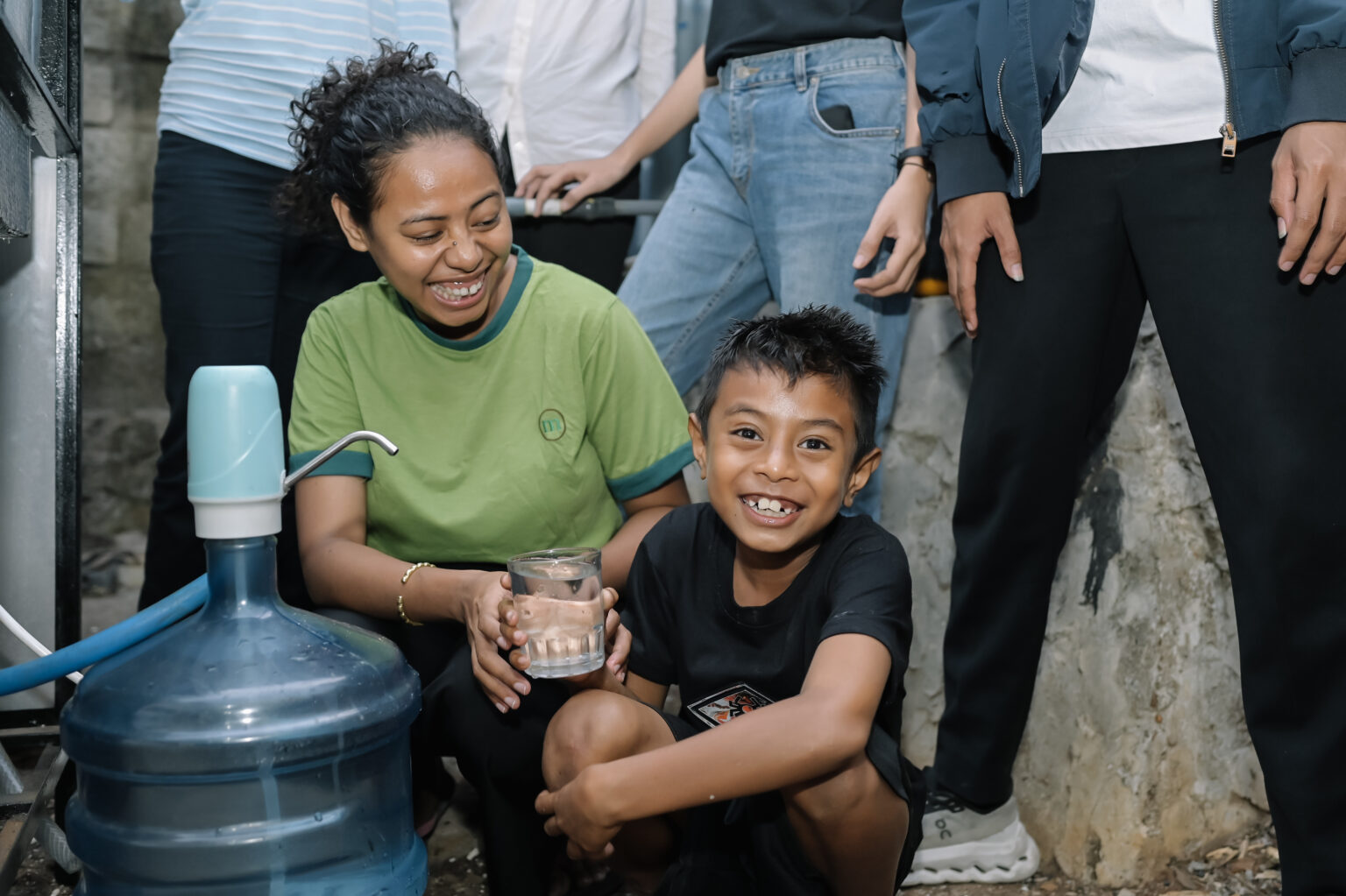
Fifteen startups have been selected to take part in the KINETIK NEX Entrepreneurs Program, which supports small and medium-sized enterprises (SMEs) working on clean energy and climate solutions across Indonesia.
The program, officially launched in Makassar on August 27, has a focus on women-led startups and those based in Eastern Indonesia.
It will provide startups with eight weeks of tailored mentoring, technical support and access to investors. Five of the participating SMEs will then be awarded a share of IDR 1.6 billion in funding to pilot their innovative solutions.
Start-ups selected for the program are working on practical solutions including converting coffee and patchouli waste into organic fertilizer using solar energy, a three-wheeled electric motorcycle taxi service for people with disabilities and training women in solar-powered sago processing.
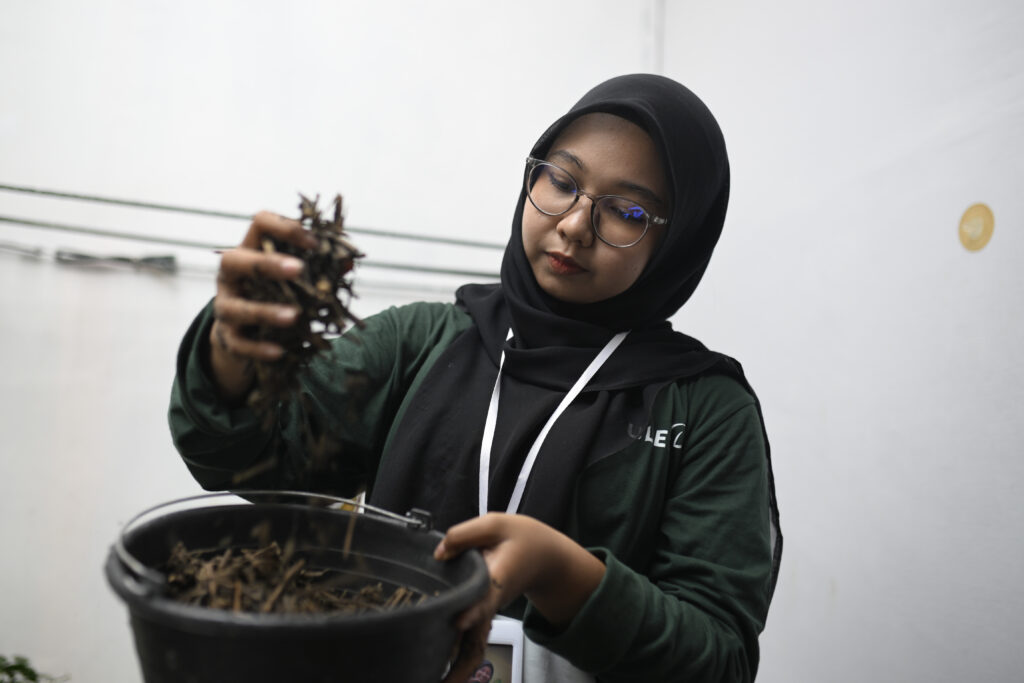
Puleh Indonesia, in Banda Aceh, converts patchouli and coffee waste into organic fertiliser. Photo: HENDRI
KINETIK NEX is delivered by New Energy Nexus Indonesia, a non-profit organisation that runs business incubation and accelerator programs for clean energy startups, with the support of KINETIK, the Australia–Indonesia Partnership for Climate, Renewable Energy and Infrastructure.
Boby Wahyu Hernawan, Director of Multilateral Cooperation and Sustainable Finance of the Indonesian Ministry of Finance, said Indonesia and Australia shared the same conviction.
“Tackling climate change is not only a global imperative, but also a real necessity to strengthen the economy, safeguard stability and protect communities,” Mr Boby said.
“KINETIK is built on a simple but important principle: development and decarbonisation do not have to be in conflict – both can advance hand in hand.”
Mr Boby said the launch of the KINETIK NEX Entrepreneurs’ Program was an important first step to build a more inclusive climate investment ecosystem that delivered multiplier effects for Indonesian MSMEs and startups.
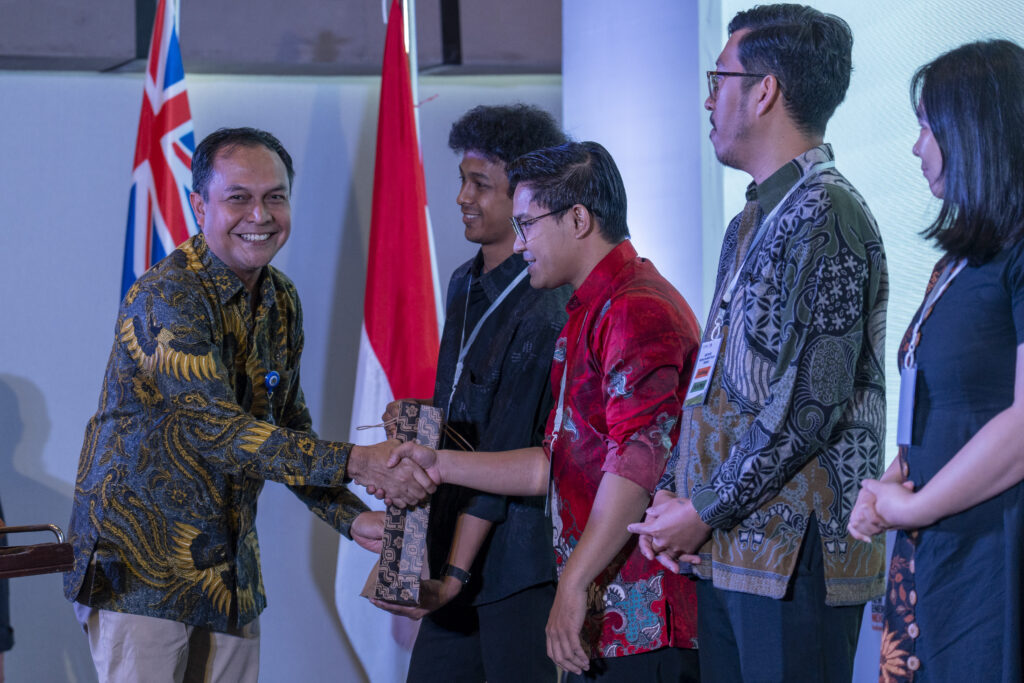
Boby Wahyu Hernawan, (left), Director of Multilateral Cooperation and Sustainable Finance of the Indonesian Ministry of Finance. Photo: JEFRI TARIGAN
“From here, we hope to see the birth of new business models that place climate solutions at the core of enterprise strategy, while also inspiring further innovation, strengthening the sustainable finance ecosystem and driving the growth of a national carbon market,” he said.
The Australian Consul-General in Makassar, Todd Dias, said that Eastern Indonesia was rich in talent and ideas, and it was very inspiring to see local entrepreneurs become pioneers in renewable energy.
“Through KINETIK NEX, we are helping entrepreneurs in Makassar and across Indonesia transform bold ideas into real solutions that will reduce emissions, create jobs, and drive a greener and more inclusive future,” he said.
Rambu Yati Radandima is the finance manager of Sumba Sustainable Solutions, which distributes solar-powered lamps and devices to remote villages in Sumba.
“Through this program, we want to encourage the creation of sustainable business models in remote villages,” she said.
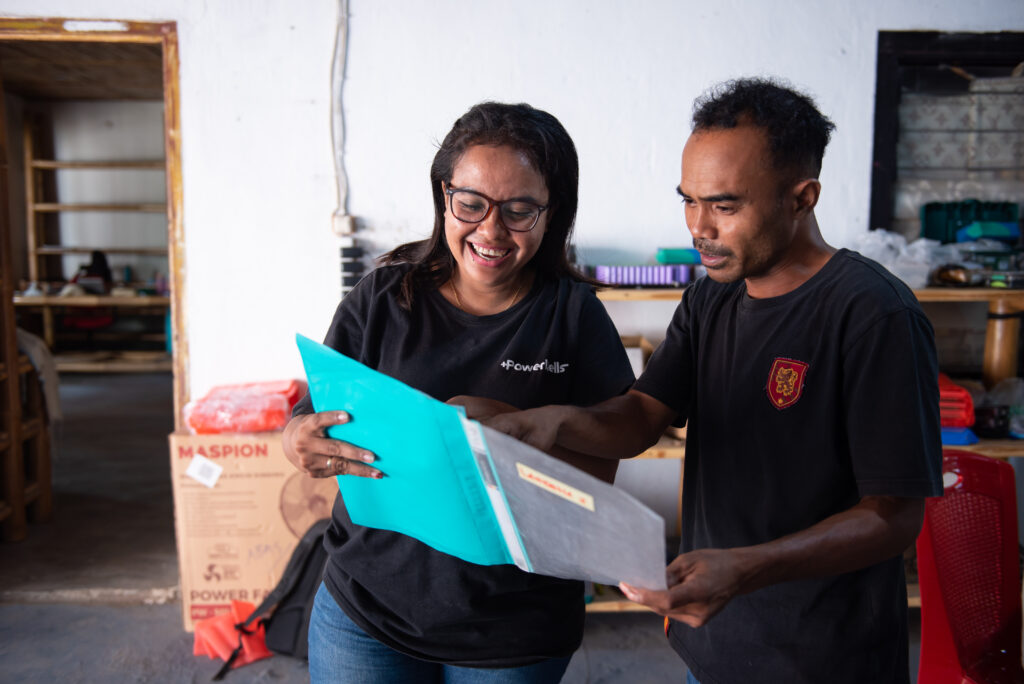
Rambu Yati Radandima, left, from Sumba Sustainable Solutions. Photo: YAN PITHER UMBU MAKI PAWOLUNG
Ms Rambu said it was important to provide access to energy and equipment that communities can use, while at the same time building profitable business schemes.
“That way, we can attract private investment and expand the real impact for communities.”
Ben Vasco Tarigan is the co-founder of Kuan Timor Technology, which supplies clean water to villages in Kupang using solar-powered desalination systems.
“I believe communities have the agency to drive change and provide solutions that can improve their lives,” he said.
“However, we cannot do it alone. We are happy and proud to be part of the KINETIK NEX business incubation program, and we hope to refine the innovation we are developing to capture moisture from the air and turn it into drinking water.”
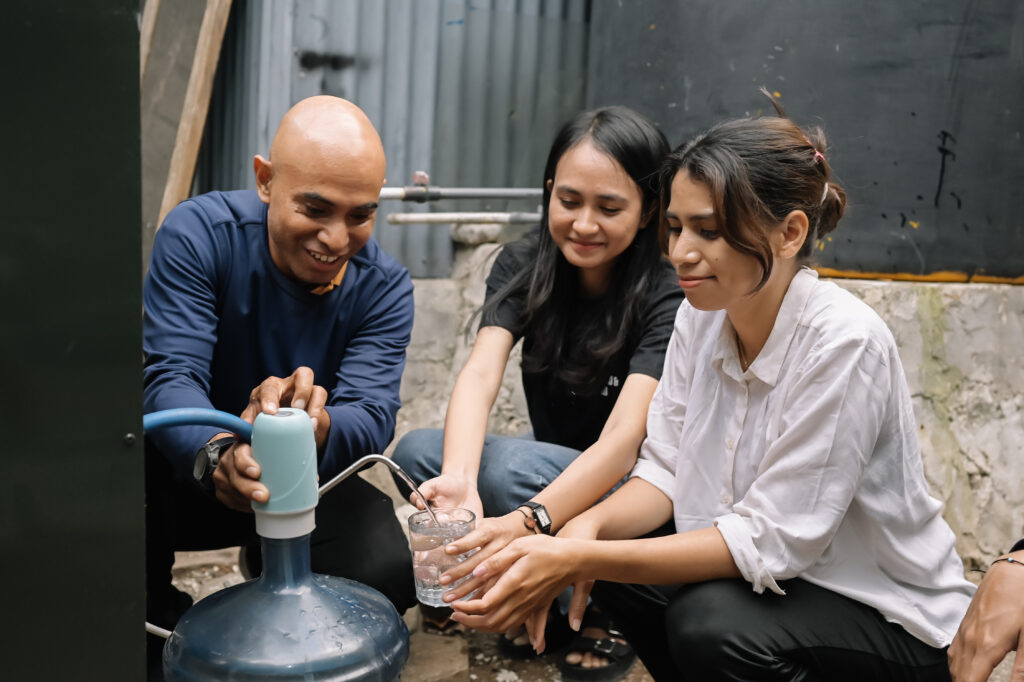
Kuan Timor Technology supplies clean water to villages in Kupang using solar-powered desalination systems.
Indonesia has abundant solar, wind, geothermal, and bioenergy resources stretching from Sabang to Merauke. However, around 80% of the country’s electricity is still generated from fossil fuels.
The director of New Energy Nexus Indonesia, Diyanto Imam, said Indonesia’s renewable energy potential was enormous but had not yet been fully realized.
“Through KINETIK NEX, we want to ensure that innovation is not only born in major cities, but also reaches the regions, creates green jobs, and brings climate solutions tailored to the needs of local communities,” he said.
Read more about the 15 startups here.

